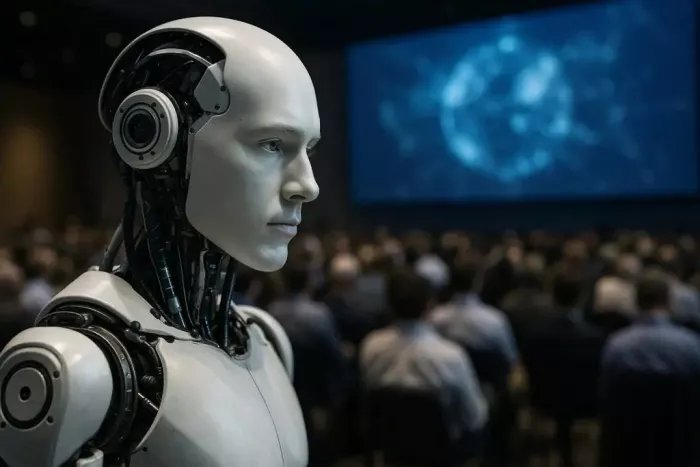
In a tech landscape often dominated by engineers and data scientists, a crucial shift is underway, highlighting the indispensable value of diverse perspectives. At the forefront of this evolution is Mira Lane, the visionary founder of Google's Envisioning Studio. Her work underscores a profound truth: the future of Artificial Intelligence isn't just about code and algorithms; it's about human understanding, ethics, and creativity.
The Unexpected Architects of AI: Philosophers and Artists at Google
Lane's Envisioning Studio operates as an AI innovation prototyping lab, specifically designed to explore the broader societal impact of technological breakthroughs. This unique mandate naturally calls for a team far removed from the typical Silicon Valley mold. Imagine a collaborative space where philosophers ponder the ethical implications of autonomous systems, and artists visualize user experiences that transcend mere functionality. This is the groundbreaking environment Mira Lane fosters, proving that non-technical careers in AI are not just possible but essential.
The traditional perception of a tech giant like Google often overlooks the critical need for roles focused on the 'why' and 'how' technology integrates with human life. As AI systems become more autonomous and pervasive, questions of bias, fairness, and accountability move from academic discussions to urgent practical challenges. This is precisely where individuals with backgrounds in humanities, social sciences, and arts excel. Their ability to think critically, understand human behavior, and envision complex scenarios makes them invaluable assets for crafting responsible and user-centric AI. These emerging humanities roles in tech, particularly in areas like AI ethics jobs, are redefining the talent pool sought by leading tech firms.
Mira Lane's Vision: Beyond the Code
The very essence of the Google Envisioning Studio, under Mira Lane's leadership, is to look beyond immediate product development and anticipate the long-term societal ramifications of AI. This proactive approach to innovation requires a deep understanding of human values, cultural nuances, and potential unintended consequences – areas where a purely technical mindset might fall short. Lane advocates for a holistic development process where diverse viewpoints converge to shape AI that is not only powerful but also empathetic and beneficial to humanity.
For aspiring professionals looking to contribute to the tech world without a coding background, Lane’s insights are a beacon. She emphasizes that skills such as critical thinking, nuanced communication, ethical reasoning, and creative problem-solving are paramount. Whether you're a philosopher trained in logic and ethics, or an artist skilled in visualizing complex ideas and user journeys, your unique perspective is becoming increasingly vital in the evolving landscape of AI development. The demand for those who can bridge the gap between complex technology and human experience is growing exponentially.
Pathways for Non-Technical Talent in AI
So, what does this mean for those eager to make their mark? Mira Lane's work highlights several key areas where non-technical talent can thrive:
- Ethical AI Design: Contributing to the development of ethical guidelines, identifying potential biases, and ensuring fairness in AI systems.
- User Experience (UX) Research & Design: Focusing on how AI interfaces with humans, making it intuitive, accessible, and desirable.
- Strategic Foresight & Trend Analysis: Predicting future societal impacts of AI and guiding long-term innovation strategies.
- Content & Narrative Development: Crafting the stories and interactions for AI-powered products, bringing them to life in human-friendly ways.
The trailblazing efforts of Mira Lane at Google AI are a clear indicator that the future of technology is inherently interdisciplinary. It's a call to action for anyone with a unique perspective and a passion for shaping the future, demonstrating that impact in the AI space extends far beyond traditional engineering roles.


Comments